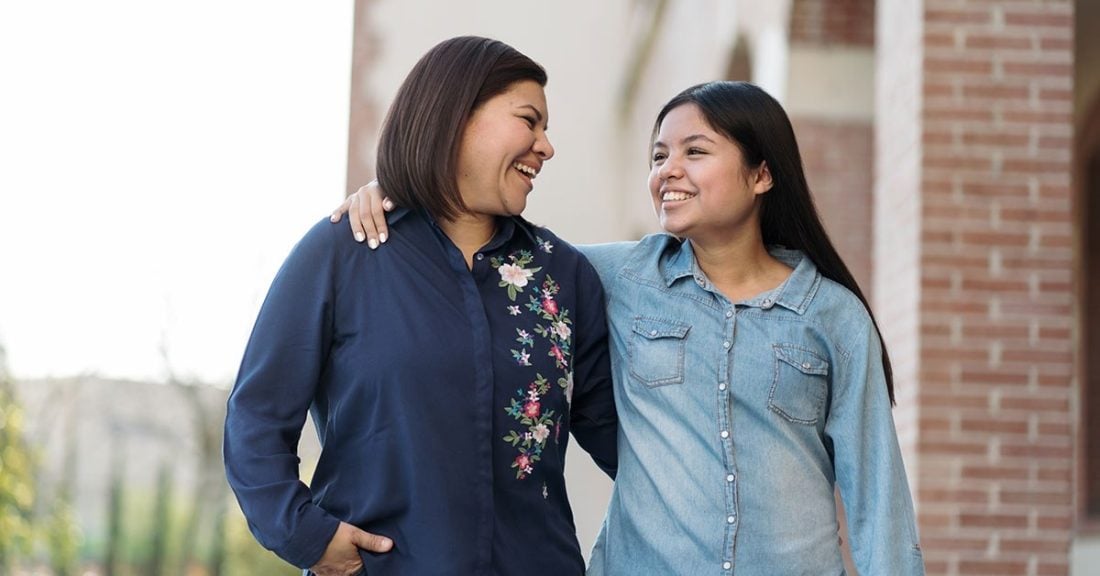Eight Youth-Centered Principles for Child Welfare and Juvenile Justice

Child welfare and juvenile justice systems must do more to ensure that the adolescents they serve will thrive, says a new report urging practitioners to adopt principles of positive youth development, racial equity and community belonging.
The report, Integrating Positive Youth Development and Racial Equity, Inclusion and Belonging Approaches Across the Child Welfare and Justice Systems, introduces STRENGTH, an eight-part framework for child welfare and juvenile justice that builds on young adults’ assets, addresses their developmental needs, and advances community-based solutions that reduce or avoid family separation.
Developed by the Annie E. Casey Foundation, the nonprofit research center Child Trends and consultant Child Focus, the STRENGTH framework is part of a multiyear effort to equip child welfare and juvenile justice systems to collaborate as they retool services using principles that will help them do more good than harm for adolescents.
“While the Foundation has worked for years to invest in public systems reform, this recent focus acknowledges that communities and government systems have assets that help young people thrive but need tools to align their work across a common youth-centered framework,” the report says.
The STRENGTH Framework
STRENGTH is an acronym for the eight youth-centered principles addressed by the framework:
- Systems integration;
- Trustworthy and safe;
- Relationships;
- Equity, inclusion and belonging;
- Needs met holistically;
- Growth, leadership and opportunities to fail and learn;
- Training and education; and
- Healing.
Even when system involvement is necessary, there can be lasting negative effects, the report says. This affects especially families of color, who are disproportionately represented in both child welfare and juvenile justice, and youth who must travel through both systems.
The report’s research team reviewed recent adolescent brain research and surveyed best practices on positive youth development. They also sought input from young people as they developed the STRENGTH framework.
Youth who experience loss and separation and who lack caring, trusted adult guidance struggle to make healthy, successful transitions to adulthood.
“We heard from young adults in the child welfare and juvenile justice systems that they face a dual challenge as they grow toward independence,” says Felipe A. Franco, senior fellow for young adult practice at the Casey Foundation. “These systems limit their ability to connect to others within their family and community and develop a sense of belonging, while simultaneously forcing independence on them without providing the healing and long-lasting relationships they need.”
The framework emphasizes that it is the responsibility of child welfare and juvenile justice systems to prioritize healing for the youth they serve.
“All youth deserve unconditional caring and those who have experienced maltreatment, neglect, trauma, or violence need this caring to form healthy, lasting relationships,” the report says.
Positive Youth Development
Positive youth development is an approach that focuses on young people’s strengths instead of their deficits, and factors that contribute to and improve their resilience, well-being, health, education and employment. For several decades, it has been successfully implemented with school-age youth. It has great potential for supporting young adults involved in the child welfare and juvenile justice systems.
The report calls on the government systems serving young adults to view their missions as supportive, not controlling. Also, their programs must explicitly promote equity and address systemic racism that contributes to disproportionate numbers of children of color entering both systems.
The next phase of the effort collects feedback, which will be used this year to develop a tool kit to help systems and communities support young adults.
“Identifying the STRENGTH principles and developing the tool kit are part of a recent commitment by the Foundation to dedicate at least half of its investments over the next decade to improving the well-being of youth and young adults,” the report says. “By working with young adults and communities, the Foundation seeks to ensure that all young adults have the family connections, relationships, connections to communities, and education and employment opportunities they need to thrive by 25.”
The Foundation’s Thrive by 25® focus is a 10-year commitment to invest in young people and the systems that can make a difference in their lives. Young adulthood — the period from ages 14 to 24 — is critical for developing one’s identity and learning the social and emotional skills necessary to build healthy relationships and succeed as an adult.





